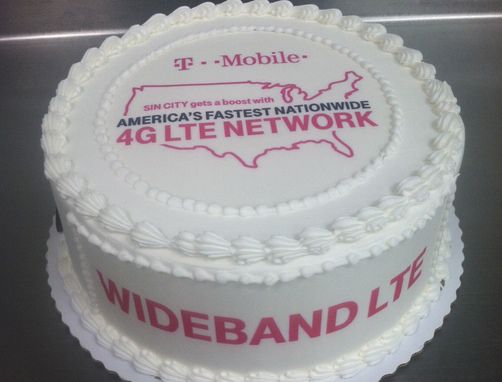The subject of wideband LTE has cropped up a number of times this year, as T-Mobile seeks to build a “Data Strong” network capable of providing super-fast speeds to all its customers (within the right area). It comes in two flavors: 15+15 and 20+20. To use the old, basic highway traffic analogy: One’s like have 15 lanes each side of the highway, and the other’s like having 20. It’s not a perfect analogy, but it’s the simplest way to explain why the 20+20 LTE is faster than 15+15, despite the fact that both use the same frequencies and bands.
Currently, only a handful of metro areas with wideband LTE have the 20+20 variety. Most have been upgraded to 15+15 which – although fast – isn’t as capable. As it stands, 17 markets are on 15+15 and 9 more are expected to go live before 2015 rolls in.
Speaking at the Oppenheimer Technology, Internet and Communications Conference today, T-Mobile’s CFO, Braxton Carter claimed that “several” 20+20 LTE markets would be live by the end of this year. But it’s not going to stop there. T-Mobile wants to cover all of the major metro areas with the fastest network around, which means eventually upgrading its remote radio heads to be capable of delivering 30+30 or even 40+40.
As reported by Fierce Wireless:
“That speed translates into significant 4G data capacity that we can put over the network,” he said. “The faster it’s going through the pipe, the more we can carry over the pipe.” The carrier’s long-term goal is to have at least 20×20 MHz LTE configurations “in all of our major metropolitan areas,” he said.
A webcast of the presentation made at the conference is available to stream on T-Mobile’s Investor site if you wish to listen for yourself. He speaks on a number of subjects including why T-Mo is able to roll out its network so quickly, and why sprint can’t.

